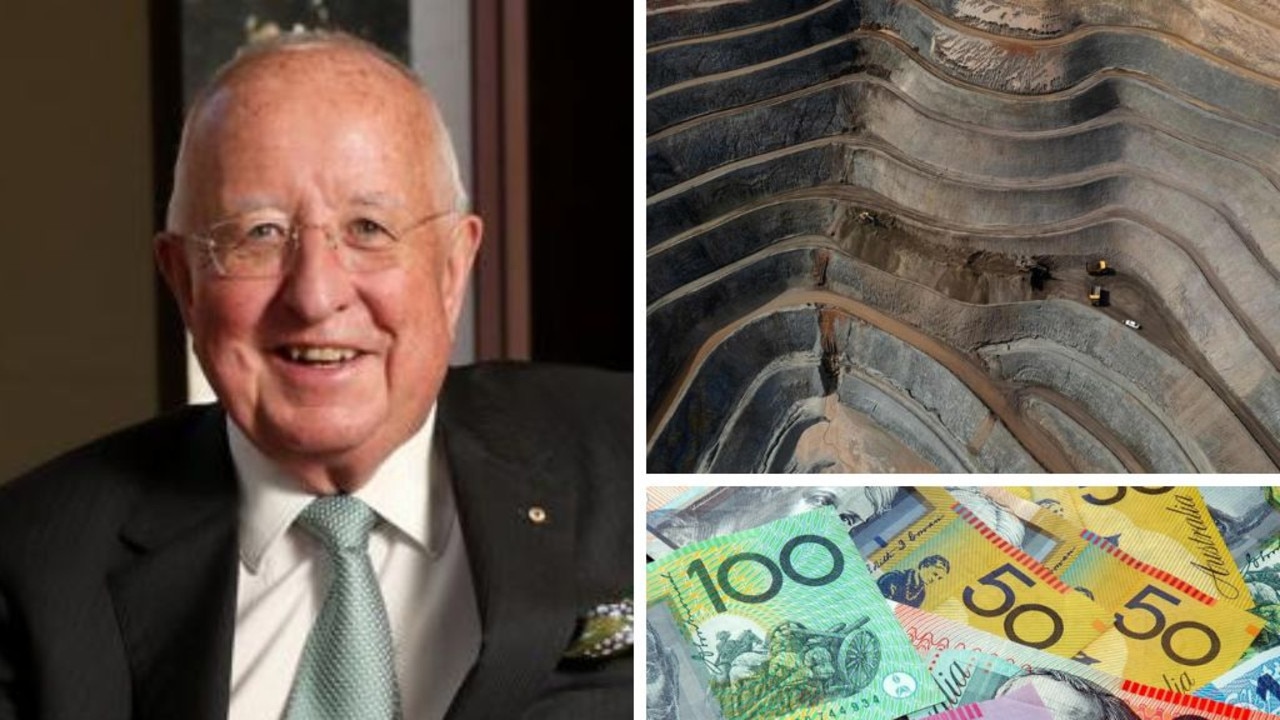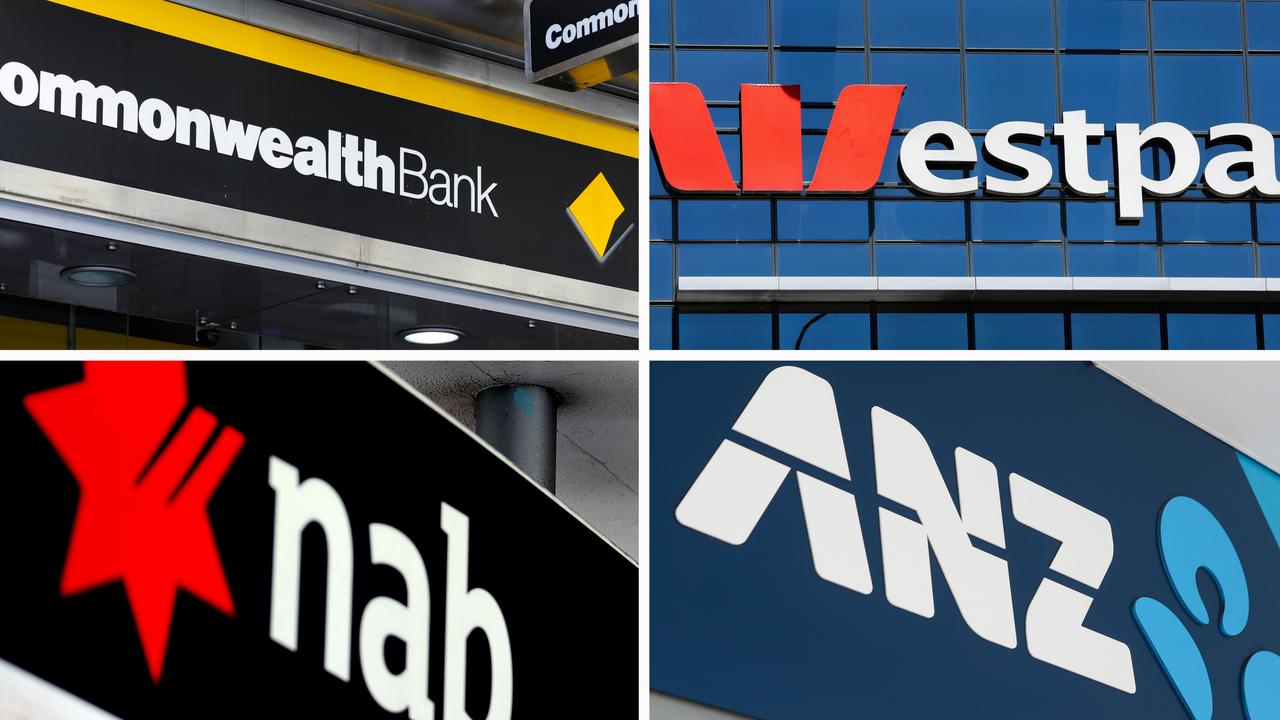RBA boss Philip Lowe makes admission during speech at business forum in Melbourne
RBA boss Philip Lowe has issued an extraordinary admission about Australia’s economy during a speech to business leaders in Melbourne.
The Reserve Bank of Australia boss has issued an extraordinary admission about Australia’s economy during a speech to business leaders in Melbourne.
RBA Governor Philip Lowe delivered the keynote address at The Australian’s Strategic Business Forum in Melbourne on Wednesday morning as he faces pressure over “negligent” advice to homeowners.
Mr Lowe was discussing how Australia's inflation rate soared higher than previous forecasts — and way above his own forecast — when he admitted he may have done things differently with the benefit of hindsight.
He said it was possible the RBA provided “too much support” during the pandemic which has contributed to higher inflation.
“Household spending, in particular, recovered more quickly from the pandemic than was expected,” Mr Lowe said.
Stream more finance news live & on demand with Flash. 25+ news channels in 1 place. New to Flash? Try 1 month free. Offer ends 31 October, 2022 >

“This reflected the success of the vaccination campaigns in advanced economies and the unprecedented support to household finances from fiscal and monetary policies.
“This policy support meant that, as the health situation improved, households had the confidence and the ability to spend.
“The result has been strong growth in aggregate demand and the emergence of tight labour markets in many countries. This has contributed to the higher inflation we are now seeing.
“Looking at this experience with hindsight, I can understand why some people might conclude that too much support was provided by governments and central banks.
“But it is important to remember the context in which this support was provided. At the time the decisions were made, the outlook was dire.
“In Australia, tens of thousands of people were expected to die, our hospitals were expected to be overflowing, many people were expected to lose their jobs and deep social and economic scarring was anticipated. It was a very scary time.”
He said that the RBA had a “strong insurance mindset”.
“In our case, we wanted to do what we could to provide insurance for Australians against the potentially catastrophic economic consequences of the pandemic.
“With the benefit of hindsight, it could be argued that we took out too much insurance. But that is the nature of insurance.
“If the event you were insuring against occurs, you are very glad you were fully insured. But if that event doesn’t occur, you are left questioning your decision and wondering whether you could have saved some money.”
In a significant admission, he accepted that while it saved jobs and protected the economy it also contributed to inflation.
“I recognise though that while this approach helped avoid some of the damaging long term scarring, it has contributed to the inflation pressures we’re now experiencing. We’re having to respond to that now,’’ he said.
Dr Lowe said the Reserve Bank was “patient” in withdrawing the insurance that was put in place during the pandemic.
On the day the Govt announces a review of the RBA, Governor Philip Lowe defends the bank's economic handling during COVID: "With the benefit of hindsight, it could be argued that we took out too much insurance but that's the nature of insurance, isn't it?" #auspol@SBSNews
— Naveen Razik (@naveenjrazik) July 19, 2022
‘Lead Australians up the garden path’
The Forum comes at a time of great uncertainty for Australians with inflation soaring and the global economy sputtering amid challenges including the ongoing pandemic and the war in Ukraine.
Rising interest rates and record petrol prices have been hard to swallow for Aussies already struggling with grocery bills that keep going up.
And the RBA itself is facing scrutiny from many who say it hasn’t handled the economic conditions well — as well as a major review announced by Treasurer Jim Chalmers.
Sunrise host David Koch was the latest to pile on, telling viewers the Reserve Bank “lead average Australians up the garden path to get themselves in debt”.
“Late last year, November-December, the Reserve Bank, Philip Lowe, was telling Aussies to go out and borrow, go out and borrow as much as you like, on the understanding. I’m not going to put up official interest rates till 2024,’’ Koch said.
“A couple of months later, they started putting up rates. Was that advice to average Australians negligent, were they derelict in their duty to lead average Australians up the garden path to get themselves in debt?”
The RBA says things will get worse before they get better and Australians should brace for inflation to peak well above the current rate of 5.1 per cent and higher than the 6 per cent predicted last month.
Mr Rowe says inflation should peak at 7 per cent in the December quarter before an expected decline early next year.
In a statement on July 5, after the decision to increase the cash rate target by 50 basis points to 1.25 per cent, the RBA Governor said that while inflation was high in Australia, it is “not as high as it is in many other countries”.
“Global inflation is high. It is being boosted by Covid-related disruptions to supply chains, the war in Ukraine and strong demand which is putting pressure on productive capacity,” he said.
“Monetary policy globally is responding to this higher inflation, although it will be some time yet before inflation returns to target in most countries.
“Inflation in Australia is also high, but not as high as it is in many other countries. Global factors account for much of the increase in inflation in Australia, but domestic factors are also playing a role.
“Strong demand, a tight labour market and capacity constraints in some sectors are contributing to the upward pressure on prices. The floods are also affecting some prices.”
He repeated the message that inflation “is forecast to peak later this year and then decline back towards the 2–3 per cent range next year”.
He said the the Australian economy “remains resilient” and the unemployment rate was steady at 3.9 per cent in May, the lowest rate in almost 50 years.
Household spending, he admitted, remains one source of ongoing uncertainty.

Review ‘welcomed by Reserve Bank’
Mr Lowe finished his speech on Wednesday with an acknowledgment of the announcement by the Federal Government of the details of the review into Australia’s monetary policy arrangements and the Reserve Bank.
He said the “terms of reference are appropriate and the Government appointed a first class panel”.
“The review is also welcomed by the Reserve Bank Board and the Bank’s staff,” he said.
“It is an opportunity to take stock of our monetary policy arrangements and make sure that they are fit for purpose for the challenges ahead. We look forward to participating in this process and listening to and learning from others.”
The new Federal Government is preparing to undertake a “once-in-a-generation” review of the RBA and former insiders have delivered a blunt assessment of the institution responsible for setting Australia’s monetary policy.
“The board is failing, and the reason it fails is because it lacks expertise,” said Peter Tulip, former head of research at the RBA.
Mr Tulip, who has also worked for the US Federal Reserve and is now with the Centre for Independent Studies, is one of a group of prominent economists — including former RBA board member Warwick McKibbin — calling for a major overhaul of the central bank, amid accusations its nine-member board lacks economic credentials.




